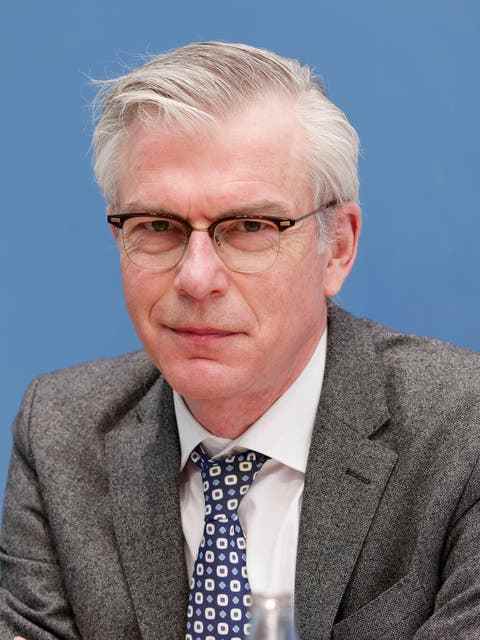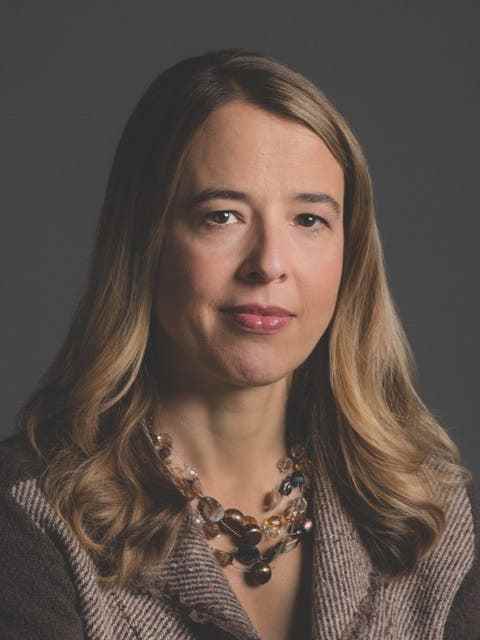Ulrike Malmendier from the American University of Berkeley and Martin Werding from the Ruhr University Bochum are to take over the vacant positions on the five-strong German Advisory Council. This means that women form the majority in the council for the first time.
The 2021/22 annual report of the German Council of Economic Experts for the assessment of overall economic development: The committee often reads the government’s riot act in terms of regulatory policy and economics.
In German political consulting, an embarrassing one-and-a-half-year stalemate is apparently coming to an end. As several media reports unanimously, the federal government has finally agreed to fill the two vacant positions in the five-person Council of Experts for the Assessment of Overall Economic Development. The «Economic Wise Men» are the most important committee for business consulting in Germany. The novices will change the face of the council significantly.
Behavioral economist and demographics expert
The two newcomers are Ulrike Malmendier and Martin Werding. Malmendier, who received her doctorate in Bonn (law) and Harvard (business administration), takes over from Lars Feld, who left the council a year and a half ago after two terms. The federal government at the time could not agree on an extension and then on a new appointment. Scientifically, Malmendier is one of the most renowned German economists. Born in Cologne in 1973, she has a long list of publications. She has held an endowed professorship at the University of California at Berkeley since 2013. The mother of three children specializes in behavioral economics, corporate finance, contract theory and is considered an expert on inflation.

Martin Werding.
Martin Werding, in turn, takes over from Volker Wieland, who left the Council at his own request at the end of April, primarily for personal reasons. Like Wieland, Werding joins the council at the suggestion of the employers. He has been a professor of social policy and public finance at Bochum’s Ruhr University since 2008 and is also considered an expert on demographics and old-age security. Born in Leverkusen in 1964, he first studied philosophy and then studied economics at the Ludwig Maximilians University in Munich and the University of Passau, where he habilitated in 2008. From 2000 to 2008, Werding headed the area of social policy and labor markets at the Munich Ifo Institute for Economic Research.
With the two new appointments, which are to be decided by the Federal Cabinet on Wednesday in Berlin, the leaderless Council of Experts would be complete again after months of uncertainty. The two newcomers join Veronika Grimm, Monika Schnitzer (both on the council since April 2020) and Achim Truger (since March 2019). The latter came to the committee at the suggestion of the unions. For the first time, women will have the majority in the Council, which was founded in 1963, and it is likely that Grimm and Schnitzer, both of whom have recently made a name for themselves in public, will be the first women to take the chair.
Advisory Council undergoes changes

It is not yet possible to say exactly how the Council will develop in terms of content. With Feld and Wieland, two regulatory politicians of the old liberal school have left. The committee and its publications will probably continue to be shaped by a liberal attitude in terms of economic policy. As a top international researcher, Malmendier will certainly give the Council of Economic Experts a new shine.
The way we work will probably also change, as Malmendier will not be able to travel from Berkeley to Germany for every monthly meeting. But due to the pandemic, virtual work has long since been established. In any case, there has long been criticism of the Council’s working methods and publication rhythm, which always presents a well-received annual report in the autumn as well as special reports.
In the future, the annual report could shrink in length and become less important, while the Council could then comment more frequently on current issues. In view of exploding energy prices, record-breaking inflation rates and major long-term challenges in pension provision, there is certainly no shortage of topics.
SYou can the Frankfurt business editor Michael Rasch on the platforms Twitter, linkedin and Xing follow.
